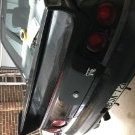Building A Leaf
Announcements
-
Similar Content
-
Latest Posts
-
Scenic roads, stunning skylines, and Chickos to finish it off! Join SAU NSW as we cruise through the Royal National Park and along Lawrence Hargrave Drive to Figtree! Sunday 26th October 2025 4:30PM Meeting Waterfall Station Parking 5:00PM Cruise Departure Royal National Park > Lawrence Hargrave Dr > Memorial Dr > Sid Parrish Park 6:15PM Arrival at Sid Parrish Park Figtree Meet Location: Waterfall Station Parking Final Destination: Sid Parrish Park RSVP: https://forms.gle/E4s5SiRKQfDdypky8 *Disclaimer* There will be a lead and follow car so no one should get lost. If you would like to attend or bring others along please put your name down and a +1 as numbers will be needed prior! This is NOT a race and we will all be adhering to all road rules. If this is what you want please come to one of our many track days. This is an official SAU:NSW event and will be run under a CAMS permit. One of the things that really sets our club apart is our commitment to being true enthusiasts. When on normal roads we strive to maintain good relations with the authorities as well as the public in general. When attending one of Skylines Australia NSW events please try to: • Be aware of surrounding environment and act accordingly. • Drive courteously on the state’s roads as a true enthusiast should. • Understand how important it is to maintain the good name of SAU NSW and thus, treat others accordingly. • Any misbehavior will not be tolerated and you will be asked to leave.
-
It's funny, as Ive seen plenty of people use them in cheap builds on YT. And they actually go okay, even though a lot of other maxspeedingrods stuff is terrible. Those turbos seem reliable enough, the only part being, a good quality turbo that is "identical" to it, will out perform it day in and day out. In both a lower boost threshold, and the ability to flow more air at the same boost pressure. As a cheap cheap replacement, not a terrible choice. For cheap and shouldn't blow in a day, not terrible (like other eBay/Temu turbos) for low cost and still decent performance, that's where the question comes in to play from the results I've seen. I'd actually find it hilarious to buy one, and strap it to a paddock basher or some other cheap as POS originally NA car, and send it to the moon!
-
The maxpeedingrods turbo is cheap and bolts on to stock parts. I think you just need a bigger silicone coupler for the intake. Its a cheap china turbo, but it's been running on mine for almost 3 years at 16-19 psi.
-
What do they look like right after you've tried to start it with everything connected? Also post photos of what they actually look like.
-
Also wanted to say, my new spark plugs are blackened looks like it's very rich. I have splitfire coilpacks but stock coilpack loom and ignitor. I tried directly grounding the ignitor ground to body as well.
-







Recommended Posts
Create an account or sign in to comment
You need to be a member in order to leave a comment
Create an account
Sign up for a new account in our community. It's easy!
Register a new accountSign in
Already have an account? Sign in here.
Sign In Now